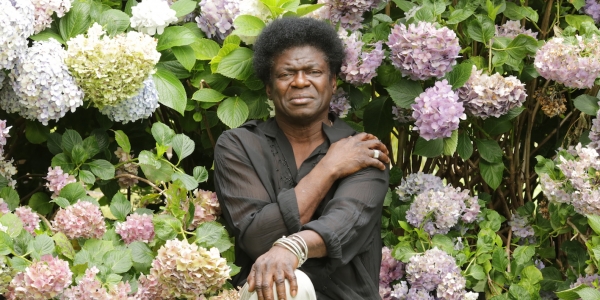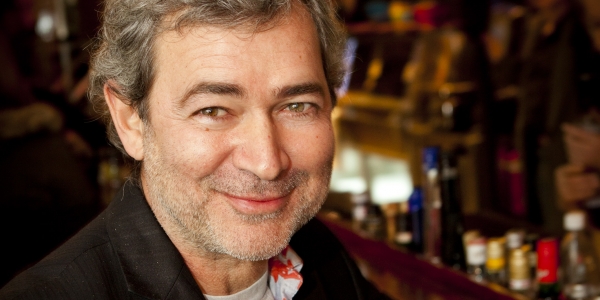“I’m a little angry right now,” he bellows raspily. The hallway is “pinkish” and Bradley asked for eggshell white. “They got paint on my floor,” he fumes. “I tell you what, I’m gonna go to Home Depot and get this done tonight. One thing my mama always told me is if you want it done right, get it done yourself.”
Bradley’s mother, Inez Welch, passed away a week-and-a-half ago, aged 90. The singer, so famous for laying his emotions bare onstage, is sharing his pain on a phone line to a reporter thousands of kilometres away. “I always loved my mom,” he says quietly. “She was a strong-headed woman. Right now, it’s like there’s an empty space and nobody’s there to take it.”
The relationship between mother and son wasn’t always easy, he says. Bradley lived with his grandmother in Florida before moving in with his mother when he was seven. But the family lived in relative squalor in New York and Bradley says he slept in a dirty basement. One time, he recalls his mother being bitten by a rat and contracting rabies. She was paralysed for six months. “I don’t know how to really put it into words for you, it was a dark time.”
At 14 he ran away from home, sleeping in subway cars and alleyways before joining Job Corps — a vocational program started by President Lyndon Johnson in the ‘30s. Bradley became a chef but he could always sing. He scraped by, travelling across the United States and occasionally performing.
In 1977, he settled in California working odd jobs for almost 20 years. It wasn’t until 1994 that he finally reconciled with his mother, hashing out their differences in a dank hotel where he was living at the time. “It was the kind of place you pay six hours at a time so you can imagine what it was like,” he says. “She hung with me in a lot of places and in the end everything came good.”
Two years later Bradley’s mother invited him to live with her back in New York. He took up a gig performing at the Tar Heel Lounge in Brooklyn as a James Brown impersonator known as ‘Black Velvet’.
The vocal hiccups, the James Brown grunts, yelps and howls, had all been well honed by this stage and some of his mother’s advice ensured his costumes were in step with the music. “One thing that she taught me was when you love what you’re doing, make a good appearance,” he says.
His flamboyance and passion came across and other artists reached out to Bradley. In 2002, Daptone Records started releasing some of his original music on vinyl. Finally, in 2011 he released his debut album, No Time For Dreaming. Bradley was 62-years old at the time. Charged with socially conscious lyrics, Bradley howls on the opening track, “This world’s goin’ up in flames/And nobody’s goin’ to take the blame,” like someone who’s witnessing it first-hand.
“The first album is me in the darkness and I’d been in the darkness for a long time,” he says. “If you’re a blues singer or a soul singer, you’re goin’ to feel it. You got to feel what you sing. I break down onstage and just try to find a way to sing the note. That’s what I do. I give it the way I feel it.”
The following year a documentary on Bradley’s life, the critically acclaimed Soul Of America, was released. To this day, he says he has yet to sit through the entire film. “I can’t watch it because when you’re livin’ it, you’re feelin’ it but you’re not seeing it, if you know what I mean,” he says. “It’s just too hard.”
Bradley says he feels much the same about the song Heartaches And Pains, which tells the story of his brother Joseph’s death. “It’s like every word has a picture behind it,” he says. “That’s tough too, y’know.”
Thankfully there is joy in the singer’s latest release, Victim Of Love, and the artist can’t wait to share his passionate songs of yearning with Australian audiences this month. “I ain’t got nothin’ but love for Australia. The food, the seafood, oh my God,” he says wistfully. “I don’t drink beer but there’s this beer you got there that tastes like almonds.”
Bradley says his socially conscious soul music connects with people because it is genuine. “I just hope people see the long road I had to go and see what it took to get where I am,” he says. “When you go on that stage and you open your heart, people can see you for who you really are. I just hope that the world will see honesty and what coming from the heart really means.”
BY SAM DAVIS







